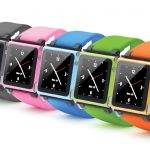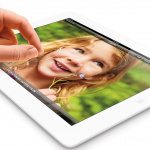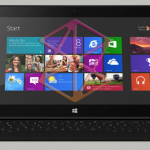Ubuntu tablet challenges Android, BlackBerry, iOS and Windows

Developers looking for Ubuntu on smartphones will get a second treat on February 21. Today, Canonical revealed a build for tablets. Supported testing devices for both platforms: Galaxy Nexus, Nexus 4, Nexus 7 and Nexus 10. Ubuntu replaces Android, not runs alongside or dual-boots with it.
"Ubuntu tablet" supports multi-touch slates running dual-core ARM A9 processor with 1GB of RAM and 8GB storage. However, Canonical's ambitions are greater for commercially-shipping products: dual-core A15 processor and 2GB RAM for 7-to-10 inch tablets and quad-core A15 or x86 processor and 4GB of RAM for 10-to-12 inch slates. The specs reveal plans to compete with touch ultrabooks or tablet hybrids like Microsoft Surface Pro. The operating system supports up to 20-inch tablets. However, lower-end tablets will be a priority.
The Windows Store is like a Bangkok night market -- full of cheap knockoffs

When Windows 8 launched on October 26 2012, the Windows Store had an estimated 9,000 apps available to purchase or download. Today, according to the excellent MetroStore Scanner, that figure has risen to 43,083 worldwide, of which 28,904 are available in the US store, and 26,385 in the UK one.
The biggest problem with the Windows Store is not the overall number of apps -- in four months it’s seen reasonable growth although the number of new weekly additions has slowed -- the issue is more with quality. While there’s no shortage of third-party apps, many of which are very good, you can’t help but notice how many big names are absent.
Microsoft NEEDs a Mobile Manhattan Project

"We didn't miss cell phones, but the way that we went about it, ah, didn't allow us to get the leadership. So it's clearly a mistake." That's the chilling admission from Microsoft Chairman Bill Gates during a CBS This Morning interview with Charlie Rose (Editor: full interview from January 30). Referring to CEO Steve Ballmer, the cofounder emphasizes: "He and I are not satisfied that in terms of, you know, breakthrough things, that we're, ah, doing everything possible". You think?
Hallelujah! Praise the Lord (or whomever or whatever you worship, if anything). Change starts with admission of fault, and Gates gives it. So what should Microsoft do about the problem? Take my advice. Please. Starting five years ago, I repeatedly recommend Microsoft lunch a Mobile Manhattan Project -- on the order of Internet Explorer in the mid-1990s but only much, much larger. There simply is no other way to catch up in mobile.
Making the case for the smart watch

With all apologies to my colleague Joe Wilcox, who bashed the Apple rumor of an "iWatch", I must respectfully disagree. I get his point, don't get me wrong. Most people of the "modern" generation do not even wear watches. In fact, they may not even own them. The cell phone has become the time piece of choice in today's world. I also understand that a watch is not the ideal place to check your email. The screen is simply too small.
However, there are uses for these devices for some of us. Not all of us, but some. I am a runner. Have been since middle school -- more years ago than I care to mention. Those of us who ran cross country and track, and later moved to road races, care about time and smartphones don't cover it. Sure there are apps for that -- Map My Run, Run Keeper, Nike...they all do the job. My colleague Wayne Williams loves Zombies, Run! But, who wants to strap a 4.5-inch screen to their arm and go for a run?
Believe it, smartphones and tablets make people use PCs less

What a difference three years make. In April 2010 I asked "Will iPad cannibalize Mac sales?" and a month later PC sales. Fast-forward 12 months, NPD answered a definitive "No". I disagreed: "Call me cynical and skeptical, but I'm convinced that changing behavior will cause many smartphone buyers, and many more tablet adopters, to delay PC upgrades".
Today, NPD sees things a little differently, based on fresh survey data that puts context behind two years of declining PC sales -- that despite Windows 8's release little more than three months ago. The firm finds that 37 percent of US consumers now access content on smartphones or tablets they used to on PCs. Changing behavior like this affects computer sales, as consumers shift behavior and delay PC upgrades or don't buy ever.
Accidental Empires Part 1 -- an accidental story in the making

First in a series. February, 2013 -- We stand today near the beginning of the post-PC era. Tablets and smart phones are replacing desktops and notebooks. Clouds are replacing clusters. We’re more dependent than ever on big computer rooms only this time we not only don’t own them, we don’t even know where they are. Three years from now we’ll barely recognize the computing landscape that was built on personal computers. So if we’re going to keep an accurate chronicle of that era, we’d better get to work right now, before we forget how it really happened.
Oddly enough, I predicted all of this almost 25 years ago as you’ll see if you choose to share this journey and read on. But it almost didn’t happen. In fact I wish it had never happened at all…
Backupify’s new developer platform aims to accelerate SaaS adoption

Data security and privacy worries are among the most often cited barriers preventing businesses from moving to the cloud. Backupify hopes to address that concern by rolling out a core set of APIs that will allow Software as a Service ISVs (Independent Software Vendors) to integrate the firm’s data protection functionality into their applications.
The aim of the Backupify Developer Platform is to make it easier for SaaS companies to offer the ability to store a secure second copy of their customer’s data off-site through Backupify, thereby assuaging their client’s security concerns. Something Backupify says "will help accelerate market acceptance of SaaS applications by allowing ISVs to continue to focus on what they do best while relying on Backupify to protect their customers’ data".
The Backupify functionality can be offered as an integrated component of the ISV's SaaS solutions, or as an optional upgrade.
Android is winning the mobile platform wars

Some days the sorry state of news reporting really baffles me. Today I read numerous headlines claiming that Android tablet share surged past 50 percent in Q4, usurping iPad -- all using numbers I wrote about a day earlier. The one on CNN -- "IDC says Android is the new king of tablet market share" -- got to me. Immediate reaction: "What did I miss?" But in looking over the numbers, nothing really jumped out that IDC said any such thing. Sure iPad shipment share fell to 43.6 percent from 51.7 percent annually and from 46.4 percent sequentially. I chose to ask the analysts rather than follow the feeding frenzy.
"Android actually passed the 50 percent mark in 3Q 12", Tom Mainelli, IDC research director for tablets, says. Whoa, there's no new king at all. Android took the crown last summer. Still, that's a phenomenal achievement, setting me to write a story I couldn't imagine a year ago.
The rumors were true: Apple debuts a 128GB fourth gen iPad

Apple attracts rumors like no other tech company. In the past week alone we’ve heard about what to expect from the iPad 5, suggestions that Apple is working on a budget iPhone that may or may not feature plenty of plastic in its design, and there’s even been talk of a larger capacity iPad 4.
It turns out this last rumor was right on the money, as Apple has just announced a 128GB version of the fourth generation iPad with Retina display.
There's something you should know about Apple

Panic in Cupertino: Headless chickens run around smacking into one another, because they don't know they're dead.
That's the fundamental problem with Apple, and this situation is largely independent of recent stock price declines that analysts, bloggers, reporters and other writers can't opine enough about. Falling shares are part of a necessary correction, as reality displaces perception. To understand what's happening now, you need to look into the past -- three years, which by Internet counting is like a lifetime.
Apple Q1 2013 by the numbers: $54.5B revenue, $13.81 EPS

Today, after the closing bell, Apple answered the question analysts have asked for weeks: How many iPhones and iPads shipped during the holiday quarter? The answer: A colossal number -- 47.8 million and 22.9, respectively.
Apple also shipped 4.1 million Macs. Analyst consensus was around 50 million, 23.5 million and 5 million, respectively, for the three devices. But the big reveal is iPad and whether the mini sapped sales of the larger tablet. In the previous quarter, iPad's average selling price was $535. Three months later, with iPad mini widely available, ASP is $467. Apple launched the slate on November 2nd alongside iPad 4. The company touted 3 million early sales, without breaking out which device. Now we know something.
Like Zune, Microsoft can't get Surface right

When Microsoft launched its portable music player Zune in 2006 few thought it would be a serious contender to Apple’s iPod. The fact that it was a US-only release spoke volumes. It was a product the firm simply didn’t have enough confidence in for a global launch.
And now we’re faced with a similar launch strategy for Microsoft Surface Windows 8 Pro. Yesterday the Redmond, Wash.-based corporation announced the delayed slate will be "available for purchase on Feb. 9, 2013, in the United States and Canada at all Microsoft retail stores, microsoftstore.com, Staples and Best Buy in the US, as well as from a number of locations in Canada". And the rest of the world? There’s no word.
The PC is dying? My own customers prove just the contrary

There's an excellent debate raging on the front pages of BetaNews for the past few weeks, and it's a topic that I feel quite entrenched in. Seeing as my computer repair business FireLogic deals with customers of all types on a daily basis, I thought I should drop my own two cents in on the subject. Joe Wilcox has argued the death knell for the PC is just about here, while a few others, like Wayne Williams (and myself), dispute the notion with quite the vigor.
I think this topic deserves some definite attention because there seems to be a perception out there that the rise in mobile devices such as tablets, smartphones and the like will completely eradicate the traditional PC. It's a touchy topic for my colleagues in the computer repair industry, and something that is frequently debated on the forums of a website dedicated to "our kind" over at Technibble.com.
Give up the PC? Get real! You’d have to pry the keyboard and mouse from my cold, dead hands

My friend and colleague Joe Wilcox has a long history of quitting tech. He famously declared his independence from Apple and a month ago said he was done with Facebook. Yesterday he announced he was quitting the PC, and switching to using a Google Nexus 10 as his primary computing device. He says the journey will be tumultuous, I say why do it then?
The truth is, the transition for Joe probably won’t be that difficult. He currently uses a Chromebook as his PC and has embraced the cloud. He is a PC user, but he’s not a real PC user. A real PC user can’t just switch to a tablet and after a few weeks be happy with the change. I love my iPad, and I loved Surface for the short time I had it. But a tablet could never be a replacement for my desktop system.
The PC is far from dead

This week, my colleague Joe Wilcox wrote about the popular catch-phrase these days -- the "post-PC era". The only problem: this concept is wrong. Yes, he included lots of analyst information, fancy numbers and predictions, but none of it is realistic to the vast majority of computing users.
Yes, tablets are popular. There is no denying that. The iPad, despite not being the first tablet, brought the concept into the real world. Amazon and Google made the devices affordable. Sure, tablets make a great solution for checking email, weather and answering a question about that movie or show on your TV -- the one that occurs while sitting on your sofa.
Recent Headlines
Most Commented Stories
© 1998-2025 BetaNews, Inc. All Rights Reserved. About Us - Privacy Policy - Cookie Policy - Sitemap.